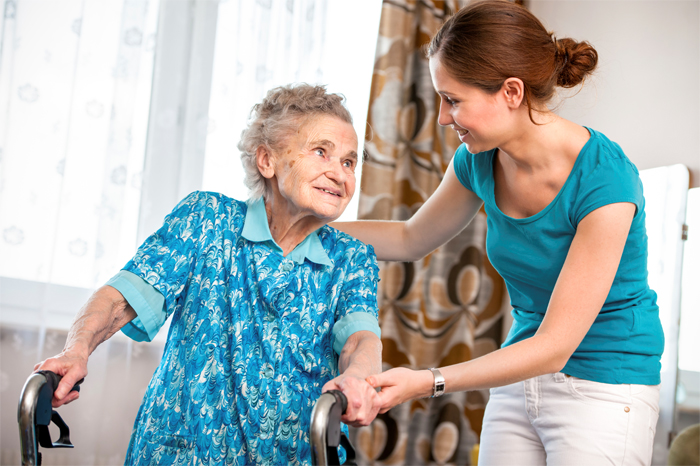Every organization is looking for an “edge”. How to better serve more patients and grow! Be in a strong position to be part of an ACO or participate in bundle payment. Etc. If I had one specialty program to implement in 2015 it would be an Oncology Home Care Specialty Program; especially if your organization offers both Home Care and Hospice. In a past life, I ran an Oncology Home Care Specialty Program. Let me share with you 8 reasons I would recommend you seriously consider this specialty program.

- Improved clinical outcomes as a specialty team delivers standardized, high-quality cancer care. Specifically you can expect to positively influence outcomes related to oral medication management, pain (and other symptoms) interfering with activity, improvement in the status of surgical (and non-surgical wounds), anxiety levels, UTIs, urinary incontinence and the amount of emergent care required. In addition, referral sources reported using Oncology Care because our patients had fewer central line infections as compared to other agencies.
- Increased patient census as referral sources learn to recognize your expertise and value the quality of care and service that your patients receive.
- Improved patient satisfaction as they realize their home care team understands the nuances of cancer care. As a provider, Oncology Care’s customer satisfaction scores had consistently been in the 98% range and when polled about their improvement in quality of life as a result of the oncology team’s involvement, there was unanimous positive feedback.
- Improved staff satisfaction/retention as you are able to recruit and retain staff members who may not have had an opportunity to practice their specialty in the home care setting.
- Improved financial outcomes as the efficiencies and reimbursement advantages of a specialized approach take hold.
- Support hospital outcomes, your oncology team can positively influence outcomes for your referral sources i.e.: decreased hospital length of stay and emergency department visits, reduced phone calls to outpatient practices, reduced care coordination time due to staff expertise, etc.
- Drive hospice referrals between 20 and 30% of the Home Care Oncology patients will need a referral to hospice.
- Other related business, Oncology Care had demonstrated that 30% of an Oncology Home Care census will most likely need a hospice referral. Infusion and DME referrals are also generated.
Following is some information that supports a case for why to do an Oncology Home Care Program. At your next strategic planning or business development meeting, create an opportunity for a dialogue to explore whether this program would help advance your organization’s mission and business objectives.
Why Do Oncology Patients Need Specialized Care at Home?
Specialty Care across all health care settings is important for quality care delivery. There’s a reason that when you have a heart attack, you’re admitted to the cardiac floor and not the maternity unit…specializing saves lives. Imagine the fear you might feel as you return home from a hospital stay, tired and nauseated, after high dose chemotherapy only to learn that your home care team has little or no oncology expertise. Cancer patients deserve specialized care in all healthcare settings.
Cancer is a complex collection of many different diseases often accompanied by extreme emotional issues. Treatment is intense and constantly changing. Keeping up with the pace of change in cancer care today is challenging for even the most seasoned oncology clinician and is nearly impossible for the generalist staff member. Implementing a specialized professional team to care for patients at home enables sophisticated care delivery where problems (like oncologic emergencies) are identified and reported early and prompt intervention is initiated.
Will the Health Care Environment Support Oncology Specialty Home Care?
Trends and statistics suggest an overwhelming opportunity for specialty cancer care in community-based settings. The population of US citizens over the age of 65 is projected to reach 55 million by 2020, an increase of 61% from a population of 34 million in 2000 (US Census Bureau). As cancer is primarily an age-sensitive disease, one can anticipate that cancer incidence will rise as well. Recently, USA Today reported that the number of Americans diagnosed with cancer in 2020 is projected to be 18.2 million, an increase of 55% from the 11.7 million individuals diagnosed in 2005 (these numbers include both individuals in treatment and those who have finished treatment). Additionally, The Centers for Medicare and Medicaid project a 150% increase in home health expenditures by the year 2017. These projected increases in population, cancer diagnoses and home care utilization rates provide a strong indication that home and community based care opportunities in cancer are set to explode.
In addition to population trends, the oncology environment is also changing in ways that demand an oncology specialty home care program. The American Society of Clinical Oncology reports a projected shortage of oncologists in 2020. According to their studies, it is anticipated that there will be a shortage of 4,080 oncologists in 2020. This projected physician shortage is another supporting trend that places homecare in the spotlight as an answer to a pending problem. Oncology specialty home care programs can and will support oncology practices working in an environment of physician deficit.
Lastly, in Medicare’s Value Based Purchasing (formerly “Pay For Performance”) model payment will be based on high quality outcomes. Research shows that specialized care that incorporates evidenced-based practice/clinical practice guidelines improves quality of care and ultimately patient outcomes.
I hope this post provides you with some food for thought. Should you want any more detail or information, please drop me a line.
The Best!!


Please note: I reserve the right to delete comments that are offensive or off-topic.